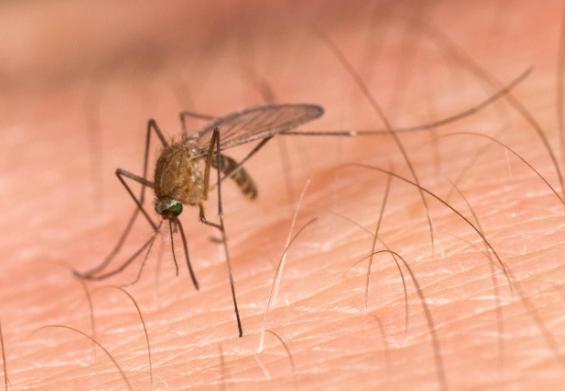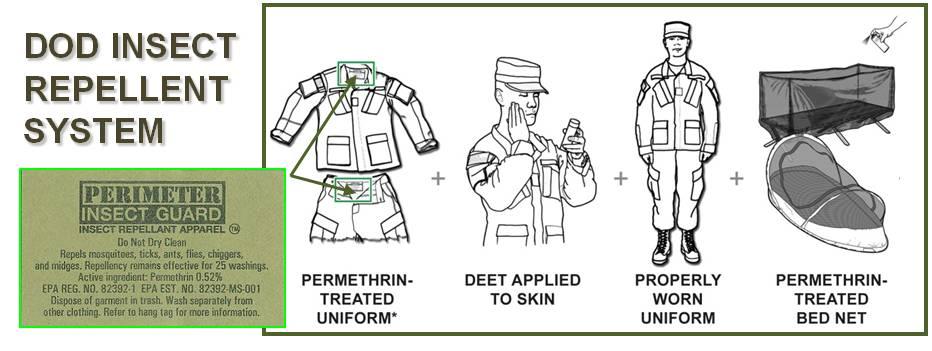Environmental Science Section - WEST NILE VIRUS
 What is West Nile virus and where is it found?
What is West Nile virus and where is it found?
West Nile virus (WNV) is a mosquito-borne virus that was first seen in the United States in 1999. Since then more than 30,000 people in the United States have been reported as getting sick from the virus, which includes more than 1,200 deaths. WNV infected mosquitoes have been found in every state except Alaska and Hawaii.
How do people become infected with West Nile virus?
People contract WNV primarily through the bite of an infected mosquito. Mosquitoes acquire this virus by feeding on infected birds. Infected mosquitoes then transmit the virus to more birds, as well as to humans and other animals, when biting them. In a very small number of cases WNV can be transmitted through blood transfusions, organ transplants, breastfeeding and even during pregnancy from mother to baby. WNV is NOT transmitted from person-to-person. For example, you cannot get the virus from touching or kissing a person who has the disease or from a health care worker who has treated someone with WNV.
Can you get West Nile virus directly from birds or other animals?
There is no evidence that a person can get WNV from handling either live or dead infected animals. However, as a general precaution, always wear gloves when handling dead animals, including dead birds, and use double plastic bags when disposing of them. Remember to report any dead birds to local preventive medicine personnel.
What are the symptoms of West Nile virus infection?
Most people who are infected with WNV, about 80%, will not show any symptoms at all. Less than 20% of people experience mild flu-like symptoms between 3 and 14 days after they are bitten by an infected mosquito. In a small number of cases, less than 1%, the disease is much more serious and can cause encephalitis, particularly among the elderly and those with weakened immune systems. Encephalitis is an inflammation of the brain. It is marked by rapid onset of severe headache, high fever, stiff neck, disorientation, muscle weakness, paralysis, coma, and even death.
Is there treatment for West Nile virus infection?
There is no specific vaccine, treatment, medication or cure for WNV, however, the symptoms and complications of the disease can be treated. Most people who get this illness recover from it. In more severe cases, individuals should seek professional medical help where treatment may include intravenous fluids, help with breathing and nursing care.
What should I do if I think I have West Nile virus?
Although milder WNV illness improves on its own, pregnant women and nursing mothers should talk to their doctor if they develop symptoms that could be WNV. Most people with mild WNV symptoms do not necessarily need to seek medical attention. However, if you develop symptoms of severe WNV illness, such as unusually severe headaches or confusion, seek medical attention immediately. Severe WNV illness usually requires hospitalization.

What can I do to prevent myself from contracting West Nile virus?
The best method of protection from biting insects such as mosquitoes is the use of the DOD Insect Repellent System. It incorporates permethrin repellent on the uniform, DEET repellent on exposed skin, a properly worn uniform and sleeping under a permethrin-treated bed net. Uniforms factory-treated with permethrin will have a garment label similar to the one shown (left). Another important preventive measure is to eliminate mosquito breeding sites. Empty water from birdbaths, old tires, and other outdoor containers that collect water. Make sure that door and window screens are in place and do not have holes. Avoid being outdoors from dusk to dawn, which is the peak biting time for many species of mosquitoes that transmit WNV.
What can I use to treat my clothing with permethrin?
Beginning in FY 2013, Army Combat Uniforms that are factory-treated with permethrin (ACU-P’s) will be made available to Soldiers. If not factory-treated, apply permethrin to uniforms in the field before wearing using either the IDA Kit (NSN 6840-01-345-0237), which can last up to 50 washings, or aerosol can (NSN 6840-01-278-1336), which lasts 5-6 washings. U.S. Environmental Protection Agency (USEPA) labeled products that contain permethrin can be used to treat civilian clothing. Permethrin impregnated garments are also commercially available to civilians.
What are the standard military insect repellent products available for use on exposed skin?
- Ultrathon (NSN 6840-01-284-3982), 33% controlled-release DEET lotion, one application protects for 12 hours.
- Ultra 30 Insect Repellent Lotion (NSN 6840-01-584-8393), contains 30% Lipo DEET, the formulation is not as greasy and one application protects for up to 12 hours.
- Cutter pump spray (NSN 6840-01-584-8598), contains 23% DEET, one application protects for up to 8 hours.
- Cutter Outdoorsman Insect Repellent Stick (NSN 6840-00-142-8965), contains 30% DEET, is a solid formulation, one application protects for up to 8 hours.
- Sunsect lotion (NSN 6840-01-288-2188), combines 20% DEET and 15 SPF sunscreen.
- Camouflage Face Paint (CFP) with 30% DEET (NSN 6840-01-493-7334).
NOTE: Do not apply repellent to the eyes or lips, or to sensitive or damaged skin.

What is considered a "properly worn uniform"?
Worn properly, your uniform acts as a physical barrier against insects. Wear the sleeves rolled down. Close all openings in your clothing that might provide access to insects: tuck pants into your boots, and undershirt into your pants. Wear your uniform loosely since mosquitoes can bite through fabric that is pulled tight against the skin.
What are the standard bed nets available to help protect Soldiers from mosquito bites while sleeping?
Lightweight, Self-Supporting, Pop-Up Bed Nets factory-treated with permethrin are available in Coyote Brown (NSN 3740-01-518-7310) or OD Green (NSN 8415-01-516-4415). Untreated Mosquito Bed Nets (NSN 7210-00-266-9736) should be treated with permethrin aerosol before setting up to prevent mosquitoes from biting through the net.
Centers for Disease Control and Prevention
United States Army Public Health Command